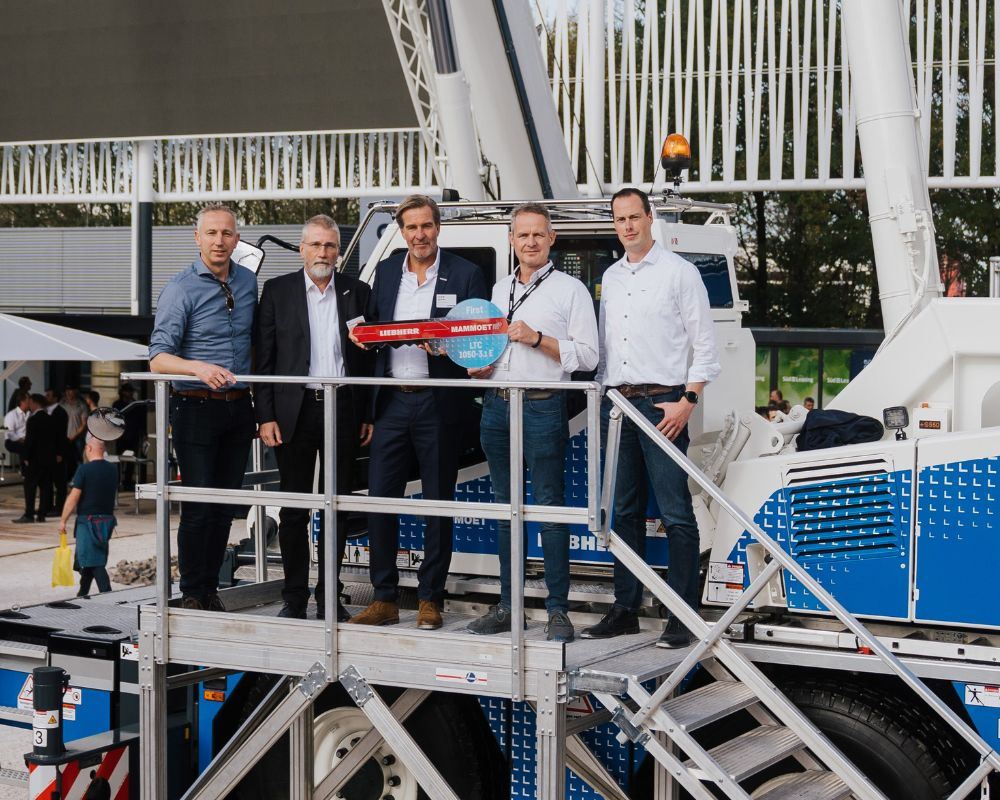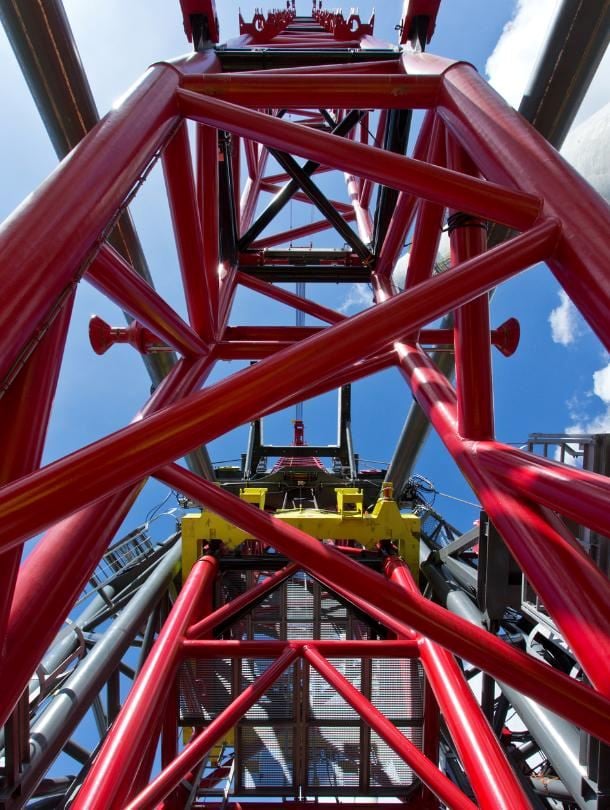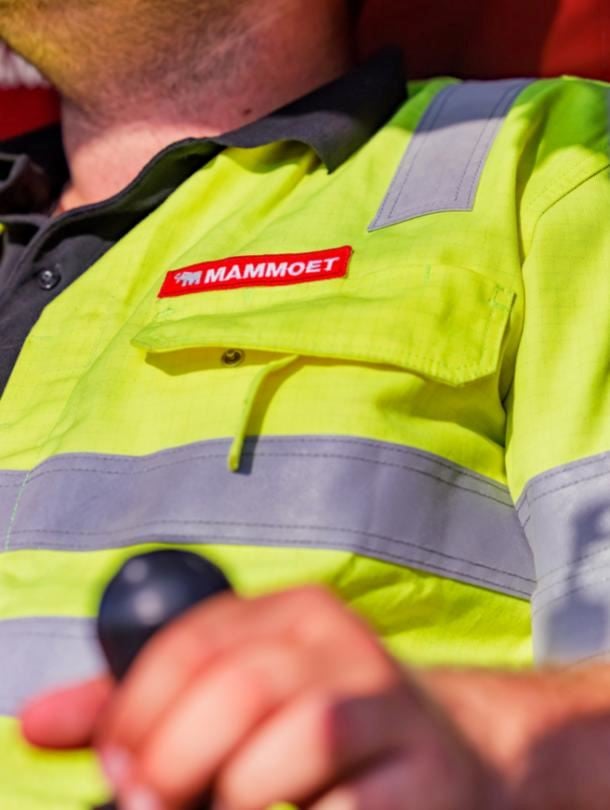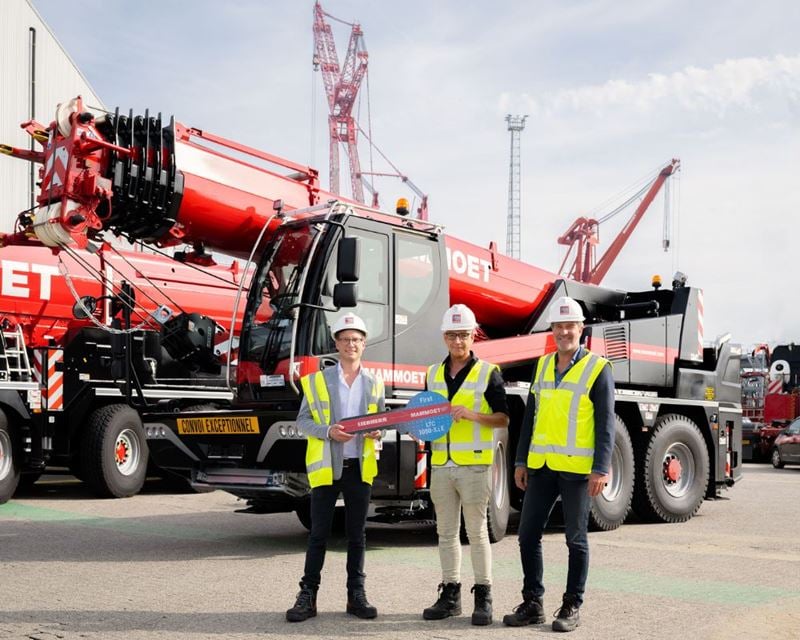
Sector:
Civil Engineering
Onshore Wind
Offshore Wind
Expertise:
Crane lifting
Benefits:
Protected infrastructure
First hydraulic electric crane joins Mammoet fleet
Mammoet has added the first electric hydraulic crane to its fleet: the Liebherr LTC 1050-3.1E. Its lifting movements can be powered electrically with full performance, generating zero emissions on site.
Heavy construction projects across all industry sectors are seeking to reduce the carbon impact of their operations, to meet strict regulatory requirements and contribute towards 2030 climate targets. As the world’s largest engineered heavy lifting and transport company, Mammoet is leading sustainability efforts.
This work has seen it use the world’s first electric self-propelled modular transporter, to make that solution deployable at scale, the electric SK crane series, electric skidding options and much more. The Liebherr LTC 1050-3.1E is another significant step towards reducing whole-project carbon emissions for all customers.
The crane can be plugged into a 32A-rated, 63A-rated or 125A-rated supply on site, and so there is no limitation to the number of working hours it can deliver, as would be the case with battery power. As it is electric, noise during operation is reduced to an absolute minimum, improving safety on site.
Peter van Oostrom, Global Projects and Assets Director at Mammoet, said:
“Cranes in the 50 tonne range are ideal to serve as a test bed for innovative technologies, as such equipment is at work around the clock for Mammoet. This allows us to offer new technologies to the largest possible number of customers, and for it to be put through its paces, demonstrating its viability in live industrial environments quickly.”
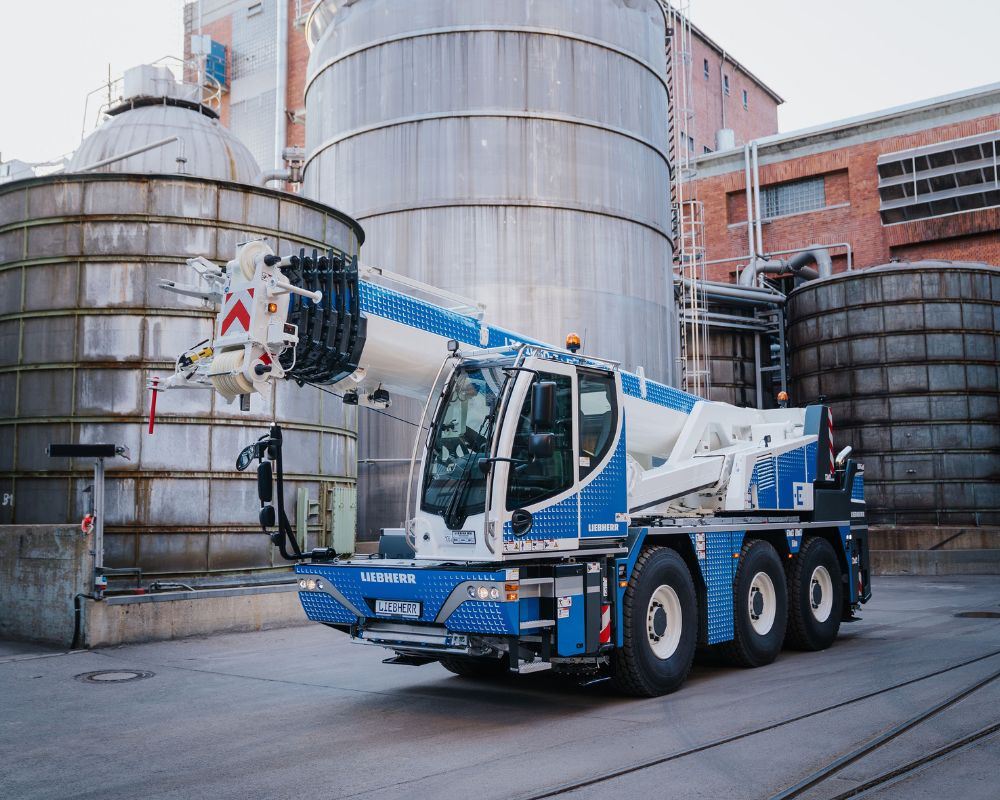
The crane will enter Mammoet’s fleet in the Netherlands, working on a variety of projects in the civil and energy sectors. All lifting operations will be delivered via electric power, and to get from site to site the crane is fully compatible with HVO fuel products, which offer a 90% reduction in CO2 compared to diesel.
“The crane will complement our existing mobile fleet, offering customers that wish reduce the carbon impact of lifting an attractive option”, continued van Oostrom. “It will also provide Mammoet with greater flexibility when taking on jobs in small physical spaces; particularly indoors, where its zero emission capability is particularly important”.
The crane will now proceed to its first project. Customers interested in reducing their carbon footprint are invited to contact their local Mammoet location.
